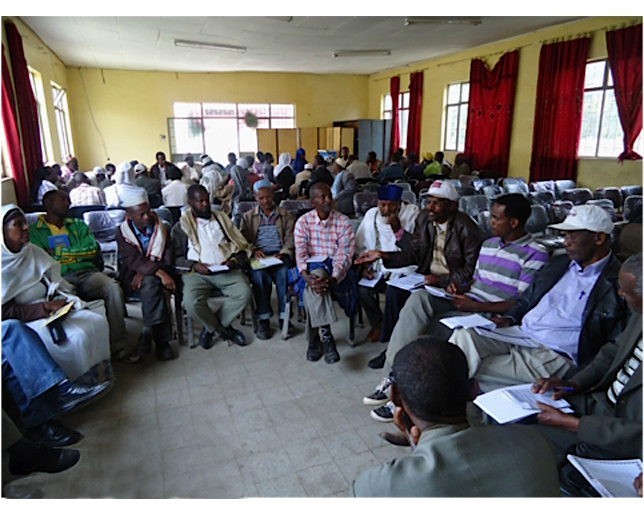

Building interfaith bridges in Ethiopia

As the world observes Interfaith Harmony Week, with its messages of tolerance and respect, religious and cultural leaders in Ethiopia are building on groundwork laid by the MDG-Fund to sow harmony amidst the country’s rich linguistic, religious and cultural diversity. For while Ethiopia’s various communities have coexisted peacefully for centuries, in recent years, sectarian tensions have emerged.
Two years ago, violent conflict erupted between the Muslim and Christian communities in the western area of Jimma that resulted in the burning of 61 churches, the displacement of thousands of people and incalculable social and economic loss.
To reach across this divide, the MDG-Fund convened a dialogue forum that brought together 124 participants, 60 of them women, from all religious communities -- Orthodox, Muslim, Protestant, traditional believers and other stakeholders.
Harmony through dialogue
In five days of meetings and workshops, the participants discussed their shared values, traditional methods of conflict resolution and the importance of religious dialogue to promote mutual understanding. Central to the discussions was the idea that every individual from every religious community can play a role in building consensus and promoting peace and peaceful co-existence.
Through the forum, the participants formed a coordinating committee with five members representing the various religious communities and stakeholders, and agreed to continue awareness raising and advocacy work among their followers.
The communities also contributed funds, labor and materials to rebuild the destroyed churches and residences. The forum participants unanimously agreed that the training had created a better understanding among the communities and that their leaders should preach peace, love and respect towards others.
Using culture to alleviate poverty
The interfaith forum was part of the MDG-F-funded Joint Programme “Harnessing Diversity for Sustainable Development and Social Change.” The programme, a collaboration between the Ethiopian government and two UN agencies (UNDP and UNESCO), was designed to promote pluralism and inclusion in Ethiopia, using culture to alleviate poverty and further social progress and sustainable development. Initiatives promoted the country’s cultural heritage and diversity, developed the creative industries and encouraged dialogue about environmental preservation among the country's diverse religious and ethnic communities, with a focus on the needs of minority, marginalized or disadvantaged groups, including women.
The Joint Programme is part of the MDG-Fund’s work to support countries around the world in reaching the Millennium Development Goals of alleviating extreme poverty and achieving sustainable development, at the same time reducing inequalities and social exclusion.